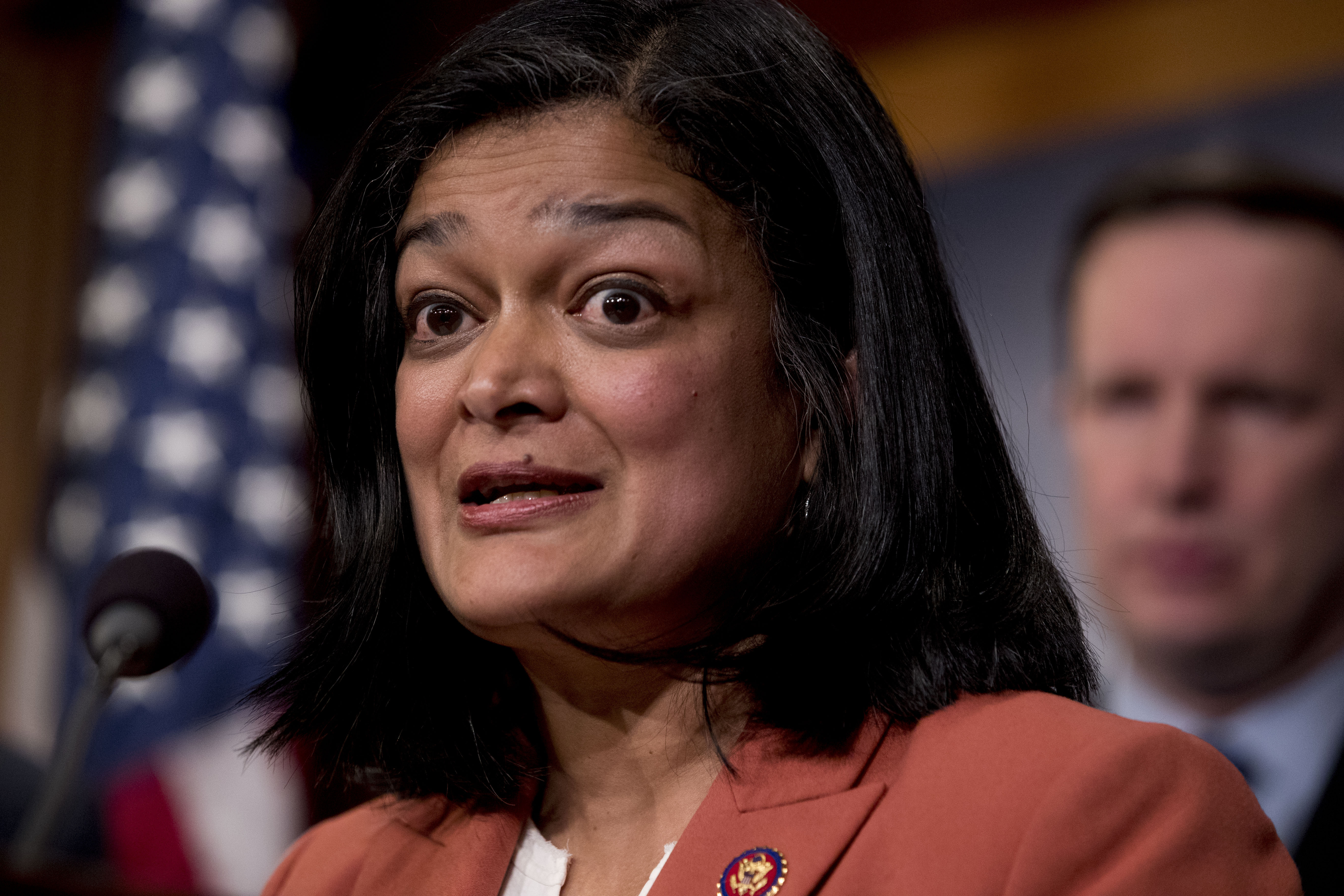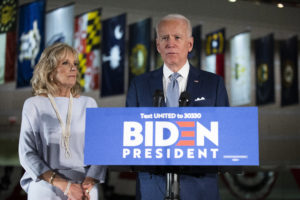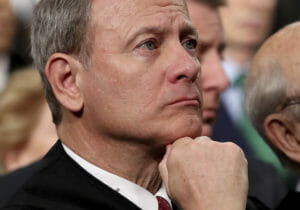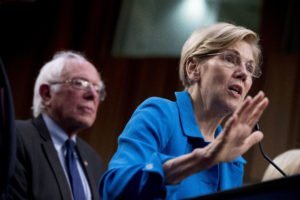Beware Any Alternative to Medicare-for-All
The bill's Democratic opponents insist that there are multiple ways to achieve universal coverage. They're simply not to be trusted. Rep. Pramila Jayapal, D-Wash. (Andrew Harnik / AP)
Rep. Pramila Jayapal, D-Wash. (Andrew Harnik / AP)
Earlier this week, Sen. Bernie Sanders (I-VT) introduced the Medicare for All Act of 2019. A companion bill of the same name has already been introduced in the House by Rep. Pramila Jayapal (D-WA). That’s good news for the country. Unfortunately, these bills are facing opposition from what, for some people, will be an unexpected direction.
I don’t mean Republicans. They’ve already lost the health care debate, in one sense, now that large majorities of voters support Medicare for All. The real threat may well come from its Democratic friends. They’re the people who say they support Medicare for All’s “goals,” but claim to have found a better way to achieve them.
Intentionally or not, Medicare for All’s “frenemies” are sowing confusion about it. Among them is Ezekiel Emmanuel, who argues, “At least four different approaches to health reform could truthfully carry the Medicare for all label.”
When opponents like Ezekiel Emmanuel argue that Medicare for All is “the most politically impractical” of all the proposals on the table, it’s important to remember two things: First, they have no expertise in politics. They’re out of their lane. Secondly, their political track record isn’t very impressive.
Why would that be so? The term was crafted by Sanders, Jayapal, and their allies to describe a single-payer system, administered by the government, with no copayments or deductibles, and without the participation of private insurers.
To be sure, the idea’s frenemies have added to the chaos. A variety of watered-down alternatives to Medicare for All have been proposed, most with names that sound like “Medicare for All”: “Medicare X,” “Medicare Extra for All,” “Medicare for America” … (I’m still waiting for a proposal called “I Can’t Believe It’s Not Medicare for All!”)
These plans are Medicare for All decoys. They claim to resemble Medicare for All, at least in their outcomes, but they’re not. Each depends on some naive combination of employer cooperation, insurance company goodwill, “smart shopping,” and Rube Goldberg-like fiscal contraptions. Each would continue to force working Americans to spend thousands of dollars on premiums, copays, and deductibles, at a time when most families say they’d have trouble finding $1,000 to cover an emergency.
Worst of all, each would allow insurance company cheating, preventable suffering, bankruptcies, and needless deaths to go on year after year.
“It turns out that most people don’t really know what Medicare for all means,” write Austin Frakt and Aaron E. Carroll. They’re speaking, in large part, about health policy types. But health policy experts, of all people, should be able to distinguish between these proposals and the Sanders/Jayapal plan.
The Urban Institute’s Linda Blumberg even goes so far as to argue that the “Medicare for All” label is a “misnomer.” Speaking to Fierce Healthcare, an industry publication, Blumberg argues that the Sanders/Jayapal program would require a massive new administrative structure, adding: “The idea behind these bills is to eliminate the current Medicare program and put them in something new.”
Unfortunately, neither statement is defensible. Medicare’s administrative systems are, for the most part, already in place. And it’s misleading to argue that Medicare for All would “eliminate” the current Medicare system. It would keep and enhance its positive features, while eliminating the out-of-pocket costs and administrative challenges that bedevil so many of its current recipients. Worse, the word “eliminate” is likely to sow unfounded panic among fearful elders.
Medicare for All would eliminate private insurers from the current Medicare system, which is presumably part of Blumberg’s expressed concern. But that isn’t likely to be disruptive for enrollees, since the benefits they’ll receive under the new plan will be much better than those they currently receive through private insurers—without the complicated paperwork—eliminating the need for private add-ons.
Medicare for All’s Democratic opponents also attack it on political grounds. They argue that public support for Medicare for All is illusory. That argument largely relies on a survey by the Kaiser Family Foundation (KFF), which found that support for the idea dropped when people learned more about how it would work.
But that poll was highly flawed, for reasons I discussed at length here, and inadvertently misled interviewees about the proposal. (To its credit, KFF has indicated to me and others that it intends to ask better and more detailed questions in the future.)
To many of Medicare for All’s frenemies, however, these flawed findings have taken on the quality of holy writ. Why? Confirmation bias, perhaps, or to win an argument?
There’s only one Medicare for All plan, and it deserves widespread support.
The “frenemies” argue that people don’t picture the Sanders/Jayapal plan when they tell pollsters they support Medicare for All. But it seems unlikely that voters are picturing a system that still includes complicated forms, a “marketplace” of incomprehensible choices, supplemental insurance plans at extra cost, gaps in pharmaceutical coverage, high out-of-pocket costs, or the other encumbrances Medicare for All would eliminate.
Most of these concessions to the private sector are invisible to people until they enter the thicket of Medicare enrollment. What most people hear when they hear the word “Medicare”—its essential “Medicare-ness,” if you like—is almost certainly a government-run program that provides health care to everyone, with access to the providers of their choice.
When opponents like Emmanuel argue that Medicare for All is “the most politically impractical” of all the proposals on the table, it’s important to remember two things: First, they have no expertise in politics. They’re out of their lane. Secondly, their political track record isn’t very impressive. They misread the depth of opposition to the ACA, for example, and failed to predict the surge in support for Medicare for All.
Neither Medicare for All nor its alternatives will pass the current Senate, so we need a plan that will help shift political power. Medicare for All is compelling enough to do that in a way that the weaker alternatives aren’t. More importantly, it’s better policy.
There’s only one Medicare for All plan, and it deserves widespread support— from its friends, its current enemies, and all the people in between.
This article was produced by Economy for All, a project of the Independent Media Institute.
Your support matters…Independent journalism is under threat and overshadowed by heavily funded mainstream media.
You can help level the playing field. Become a member.
Your tax-deductible contribution keeps us digging beneath the headlines to give you thought-provoking, investigative reporting and analysis that unearths what's really happening- without compromise.
Give today to support our courageous, independent journalists.






You need to be a supporter to comment.
There are currently no responses to this article.
Be the first to respond.